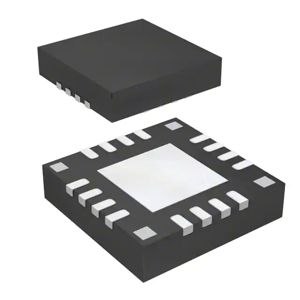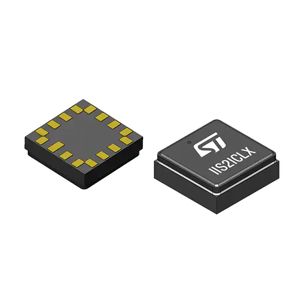
Motion Sensors - Accelerometers
Motion Sensors - Accelerometers: Precision in Motion Detection
Definition:
Motion Sensors - Accelerometers are specialized devices designed to measure acceleration forces, including static (gravity) and dynamic (movement or vibration) forces. These sensors are essential for detecting and analyzing motion in various applications, from consumer electronics to industrial systems. By converting mechanical motion into an electrical signal, accelerometers provide critical data for orientation, tilt, shock, and vibration detection.
Types of Motion Sensors - Accelerometers:
1. MEMS (Micro-Electro-Mechanical Systems) Accelerometers: Compact, low-power sensors widely used in smartphones, wearables, and IoT devices for motion tracking and gesture recognition.
2. Piezoelectric Accelerometers: Ideal for high-frequency vibration monitoring in industrial machinery, automotive testing, and aerospace applications.
3. Capacitive Accelerometers: Known for high accuracy and stability, commonly used in navigation systems, robotics, and medical devices.
4. Piezoresistive Accelerometers: Robust sensors capable of measuring high-impact forces, often applied in automotive crash testing and structural health monitoring.
Buying Recommendations:
When selecting an accelerometer, consider the following factors:
- Measurement Range: Choose a sensor that matches the expected acceleration levels (e.g., 2g for consumer devices vs. 500g for industrial impacts).
- Bandwidth: Ensure the sensor s frequency response aligns with your application (e.g., low-frequency for tilt sensing vs. high-frequency for vibration analysis).
- Output Type: Analog, digital (I2C/SPI), or wireless outputs should suit your system s integration requirements.
- Environmental Durability: For harsh environments, opt for models with robust enclosures and resistance to temperature, humidity, or shock.
Motion Sensors - Accelerometers are pivotal in enabling smart, responsive systems. Whether for innovation in consumer tech or precision in industrial automation, selecting the right accelerometer ensures optimal performance and reliability.
Filter and sort
Categories
10028M50
RELOG M VIBRATION DATA LOGGER
IIM-42351
COMPACT, LOW POWER 3-AXIS INDUST
ADXL375BCCZ-RL7
ACCELEROMETER 200G I2C/SPI 14LGA
AXO215
ACCELEROMETER 15G SPI 28CLCC
MMA2204EGR2
ANALOG CIRCUIT, CMOS, PDSO16
LIS2DW12TR
ACCEL 2-16G I2C/SPI 12LGA
CMCP1100ST-20-00-00
LOW COST ACCEL W/TEMP, SIDE, 20M
IIS2ICLXTR
2-AXIS ACCELEROMETER FOR INDUSTR
AD22293Z-RL7
ACCELEROMETER 5G ANALOG 8CLCC
MMA6827BKCWR2
ACCELEROMETER 120G SPI 16QFN
ADXL312ACPZ-RL
ACCEL 1.5-12G I2C/SPI 32LFCSP
780A-D2
ACCEL SENSOR
MMA8210KEG
IC SENSOR ACCEL X-AXIS SOIC16
AIS1120SXTR
ACCELEROMETER 120G SPI 8SOIC
MNS2-9-IN-AC-GS
ACCELEROMETER 2G
MMA6262QR2
PLUS/MINUS 1.5G DUAL AXIS MICROM
787-500-M12-IS
ACCEL IEPE SENSOR
CMCP787A-M8
PREMIUM ACCEL, 100 MV/G SIDE M8
ADXL362BCCZ-RL7
ACCELEROMETER 2-8G SPI 16LGA
736T
ACCEL SENSOR




















